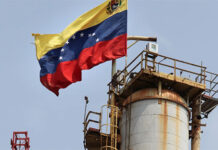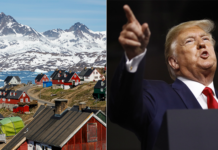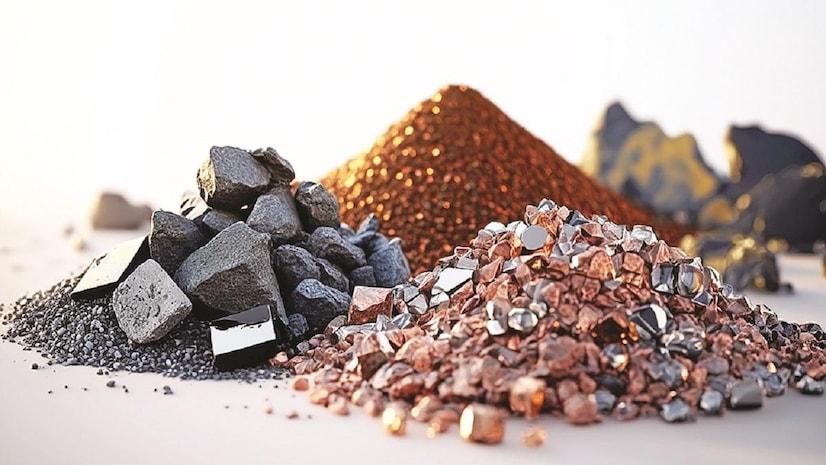
In February, the Center for Strategic and International Studies (CSIS), an inside-the-beltway think tank, published a book-length study entitled Critical Minerals and the Future of the U.S. Economy, edited by Gracelin Baskaran and Duncan Wood.
The study laid bare what CovertAction Magazine co-founder Philip Agee detailed throughout his career: how U.S. military and covert interventions were driven largely by multi-national corporations and a yearning to secure access to the mineral wealth of developing world countries.

The CSIS report makes clear that this yearning has become more acute in the 21st century, when strategic minerals are necessary to power high tech computer and Artificial Intelligence (AI) systems and to advance the so-called clean energy revolution.
Donald Trump has been candid about the importance of rare-earth minerals to the 21st century U.S. economy, seeking to broker a deal with Ukraine to secure access to its rare-earth minerals in exchange for continued U.S. military aid. Trump has also talked about directly colonizing Greenland—heavily valued because of its untapped mineral wealth—and incorporating mineral rich Canada as the 51st U.S. state.
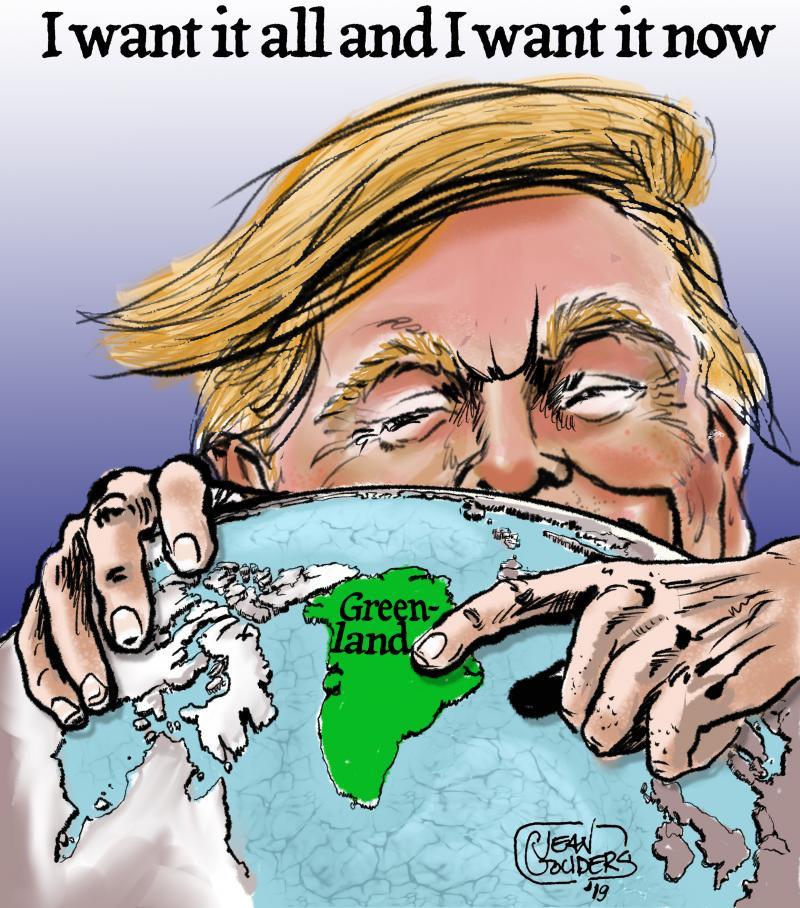
The book launch for the CSIS’s critical minerals study was hosted by U.S. Senator Todd Young (R-IN), who sits on the board of the National Endowment for Democracy (NED), a CIA offshoot specializing in political propaganda and helping to coordinate regime-change operations.
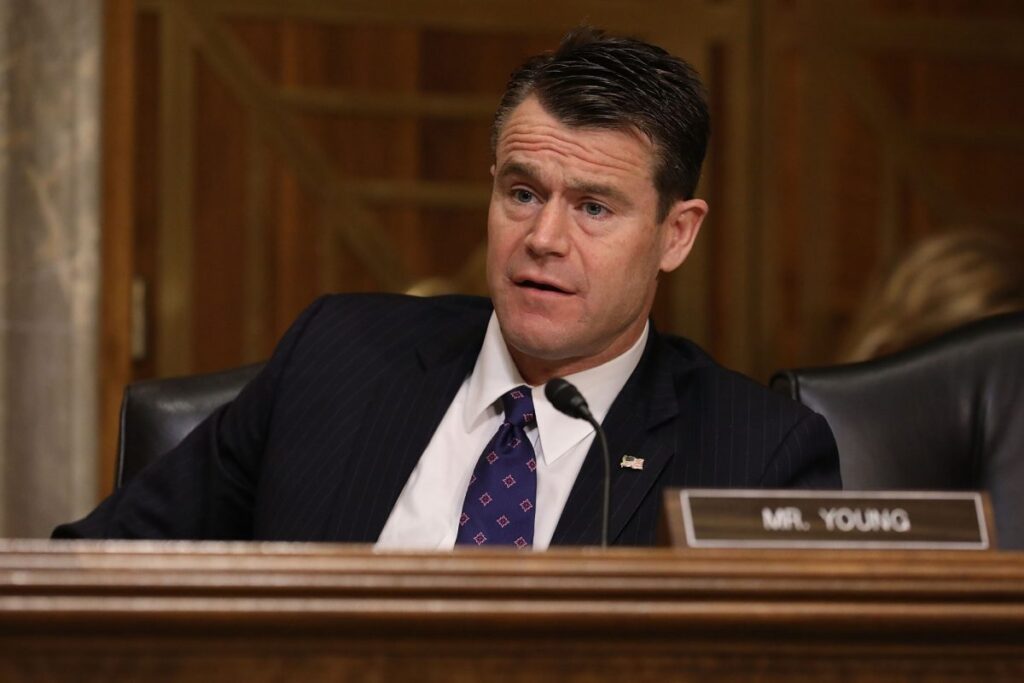
The report starts out by noting that “mining is an inextricable part of the American story. What starts as rock in the ground goes on to become the inputs that build America’s homes and buildings, transportation systems, energy generation and transmission, defense systems, and technological capabilities. Mining is the foundation that allowed the United States to be a military leader, providing the minerals needed to manufacture tanks, missiles, fighter jets and warships. It is the reason computers, phones, and iPads exist. Mining is the reason we have energy and can turn on lights every morning.”
A pivotal concern is that China is the major producer of 29 of the 50 minerals identified as critical by the U.S. Geological Survey.
China’s willingness to weaponize these minerals was epitomized by its initiating export restrictions, including complete bans, on antimony, gallium and germanium. The report warned that China has developed a “stranglehold on minerals processing, refining between 40 and 90 percent of the world’s supply of rare earth elements, graphite, lithium, cobalt, and copper.”
The authors wrote that “reducing reliance on China and creating resilient mineral supply chains is one of the most bipartisan priorities in Washington, D.C.”
Making the World Safe for Silicon Valley to Flourish
At the start of World War II, the Roosevelt administration signed into law the Strategic and Critical Materials Stockpiling Act of 1939 establishing strategic material supply reserves. In a letter to Congress, President Franklin D. Roosevelt noted that commercial stocks of vital raw resources in the U.S. were low and that, “in the event of unlimited warfare on sea and in the air, possession of a reserve of these essential supplies might prove of vital importance.”

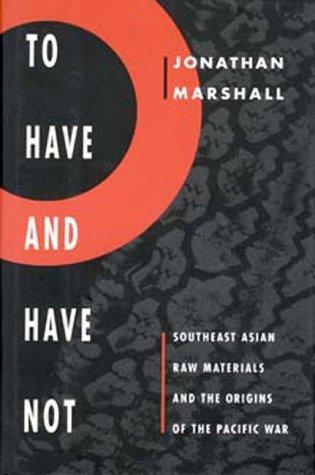
According to historian Jonathan Marshall, control of Southeast Asia’s rich mineral resources was the key determinant underlying U.S. war provocations directed against Japan that led to the Pacific War. Japan had established a regional empire coming on the heels of the decline of European colonial empires that threatened U.S. control over Southeast Asia’s mineral wealth.[1]
Throughout the Cold War, the U.S. raised the specter of the Soviet threat to justify continued imperialistic intervention designed to heighten access to mineral resources needed to power the U.S. economy and military.
Well-known examples include the CIA coup in Iran in the 1950s to secure access to oil and the 1973 CIA-backed coup in Chile after President Salvador Allende nationalized Chile’s copper industry (which was dominated previously by two U.S. firms, Anaconda, and Kennecott).

Another was the 1965 CIA-backed Indonesia coup and genocide, which paved the way for the exploitation of Indonesia’s rich mineral wealth by Western-based multi-national corporations and clear-cutting of Indonesian forests.


In the post-Cold War period, the U.S. government became more open about intervening in countries to access their mineral resources. Donald Trump, as an example, admitted that the U.S. was in Syria to steal its oil. New York Times columnist Thomas L. Friedman wrote some years before Trump took office that “the hidden fist that keeps the world safe for Silicon Valley’s technologies to flourish is called the US Army, Air Force, Navy and Marine Corps.”
Sights on Zambia
One country that the U.S. ruling elite has set its sights on now is Zambia because it is a leading producer of copper, which the CSIS report specifies as a “necessary material for many of the advanced technologies that are essential to the modern global economy, including in infrastructure, clean energy, electronics and automotives; copper wires connect electrical grids, integrated circuits, and telecommunication systems.”
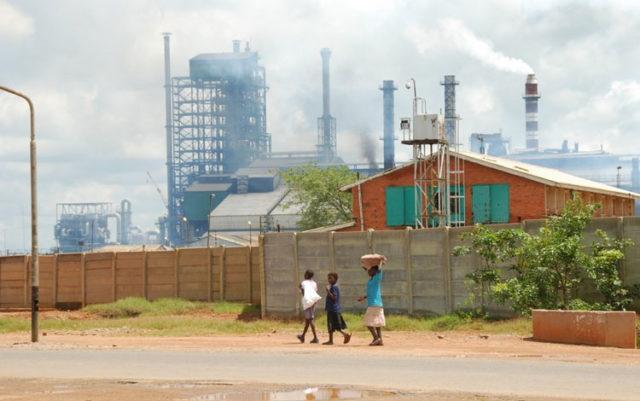

CovertAction Magazine has previously reported on the expansion of the U.S. Africa Command (AFRICOM) in Zambia, the Biden administration’s gifting of four Bell helicopters, and U.S. support for the right-wing government of Hakainde Hichilema, which has loosened regulations and lowered taxes on foreign mining companies operating in Zambia to enable a $2 billion expansion of copper production.[2]
In January 2025, Citizens First Party Chairperson for Mines and Minerals Committee Felistus Mumba, criticized the Hichilema administration for suspending a 15% export duty on precious stones and metals and for secrecy surrounding mining agreements, citing KoBold Metals, a Silicon Valley-based company backed by Jeff Bezos and Bill Gates, planning a $2.3 billion investment in the Mingomba copper mine project.[3]
While the U.S. provided Zambia with $250 million in foreign aid in 2024, Hichilema’s pro-corporate policies[4] have made him extremely unpopular in the capital Lusaka and the copperbelt area due to the economic hardship experienced by Zambians living there, according to The Lusaka Times. Mumba said that “it is unconscionable that Zambians go to bed hungry while the country sits on vast mineral wealth.”

Harsh neoliberal policies have coincided with a mounting campaign of repression targeting Zambia’s socialist party, which developed a progressive manifesto pledging to reverse Zambia’s slide into privatization and de-industrialization and calling for re-assertion of national control over the copper industry.[5]
The situation in Zambia no doubt will provide a blueprint for other countries possessing vital minerals, whose socialist parties will face the same kind of repression.
Semi-Conductors, Military Advantage and a Clean Energy Revolution?
The CSIS report emphasizes that semi-conductors, foundational to modern life because of their use in smart phones, computers, medical devices, automotives and military applications, are mineral intensive, requiring essential quantities of gallium, germanium, palladium, silicon, arsenic and titanium.
The authors write that “the production of these resources is largely concentrated in foreign adversaries, exposing a severe national security risk.”
This risk necessitates building up the defense industry and military, which are reliant on strategic minerals, hence creating an ever-greater demand for them.
According to the report, China, unfortunately, is acquiring new weapons systems roughly five to six times more quickly than the U.S. based on its control over world mineral supplies, which the U.S. needs to try to offset.
Electric vehicles and renewable energy, like wind farms and solar energy plants, also require large mineral inputs whose supply chains are increasingly dominated by China. Wind farms and solar energy facilities require more mineral inputs than conventional power plants, enhancing yet greater demand for the minerals.
The Biden administration’s climate initiative, providing tax credits, loans and grants for renewable energy, does not seem all that environmentally friendly in the latter context, particularly if one considers the environmental effects of mining operations that pollute rivers, poison the air, despoil the land, and displace indigenous people.

Biden and the Democratic Party’s hawkish foreign policy, packaged under the false veneer of democracy promotion, makes best sense in light of the need to extract more and more minerals to fuel the “clean energy” revolution.
How clean this revolution is should be more openly questioned, including by environmentalists and progressives who support the Democratic Party.
Domestic Mining
The CSIS report laments that it takes on average 29 years to build a mine in the U.S. because of a “Byzantine” permit system and “burdensome” Environmental Protection Agency (EPA) regulations along with bureaucratic inefficiency.
The U.S. economy was in the late 19th century rooted in mining industries, which gave rise to radical labor groups like the Industrial Workers of the World (IWW) because of the exploitative working conditions that are prevalent today in many countries.
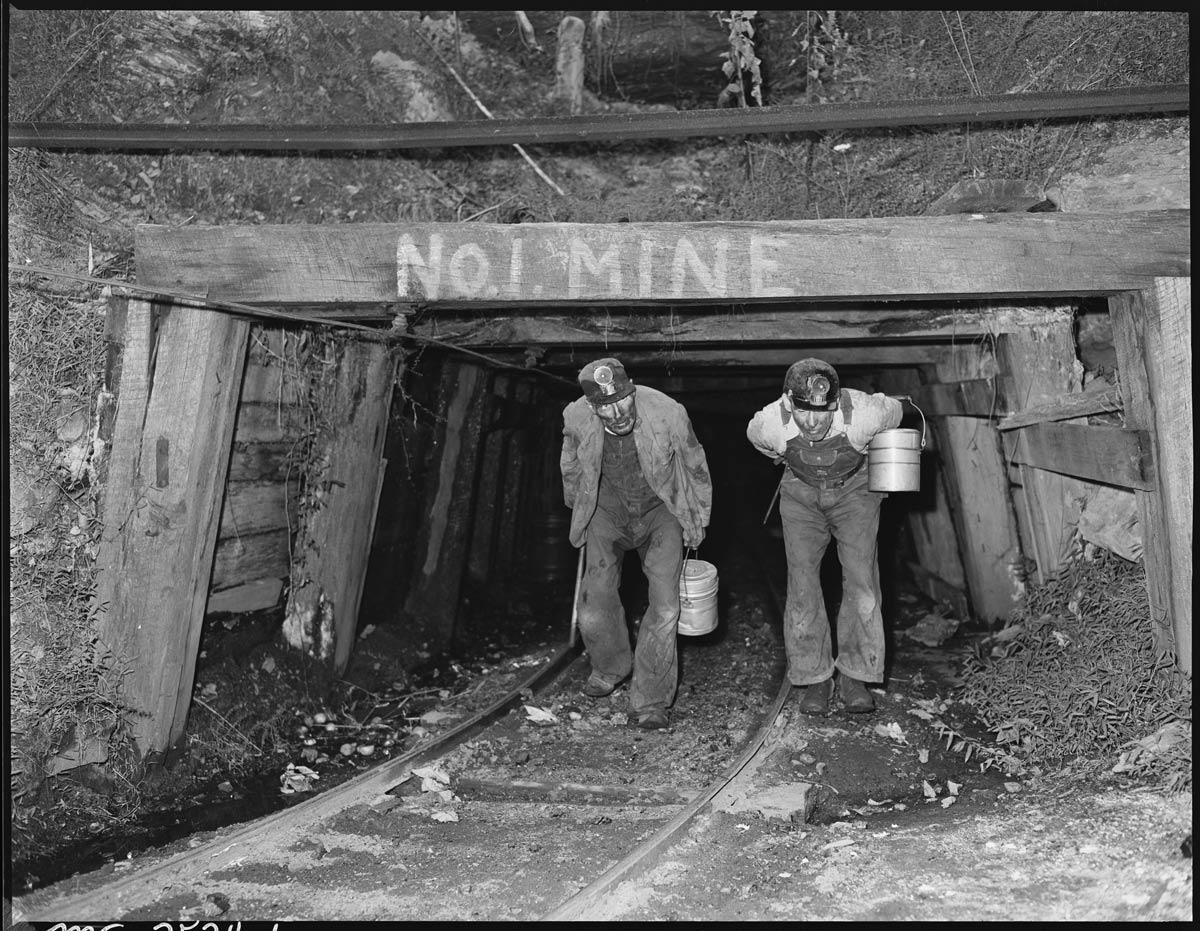
One of the chapters in the CSIS report advocates for streamlining the permit system for mining projects in the U.S., considered to be socially and environmentally responsible to allow for revitalization of domestic mining.
Sugarcoating Modern-Day Colonialism
The report is generally written from a nationalist perspective that places primacy on the U.S. wresting control over mineral supply chains from China and securing access to mineral deposits around the world. This is to be achieved in part by better developing the “defense-industrial base” and placing the U.S. more on a war footing than it already is.
The pitfalls of the approach are never explored nor the likelihood of heightened military and covert military operations that have a disastrous track record, especially for the subject countries.
Further, there is the danger of outright war with China, which the CSIS report makes clear the U.S. could never win.
Lead author Gracelin Baskaran, a South African economist with a Ph.D. from Cambridge University who worked for the World Bank, claims that “Western companies are generally more responsible, environmentally conscious, and attentive to human rights and labor conditions [than non-Western ones],”[6] which history does not bear out.

Baskaran believes that a framework can be worked out where resource-rich countries would benefit from an expansion of mining operations by Western companies. Zambia, however, is indicative of the historical pattern by which the U.S. government helps to secure a privileged operating environment for Western corporations whereby they pay limited royalty taxes and can get away with exploiting the local labor force and plundering the local environment.
Furthermore, the U.S. government frequently orchestrates covert and military operations to help secure a favorable business climate for these companies that often result in the deliberate enflaming of ethnic divisions and spread of endemic violence.[7]
Baskaran praises the Biden administration’s $600 million Lobito Corridor project—an infrastructure project linking the ports of Lobito on Angola’s Atlantic Coast to Zambia through the Democratic Republic of the Congo (DRC), which contains some of the world’s largest deposits of critical minerals like cobalt and copper.

Baskaran’s viewpoint is challenged by Dady Saleh, a Congolese economic analyst in tune with local opinion, who told Al Jazeera that the Lobito Corridor was “neo-colonialist—an organized sell off of the region’s natural resources in a capitalist system” by which locals would only benefit “with crumbs.”
Saleh further said that the Lobido Corridor agreement was returning Africa “to the old days, where railroads were made to facilitate the transport of our raw materials by the colonialists,” adding that through the project “we’ve opened up our economy to modern plunderers.”
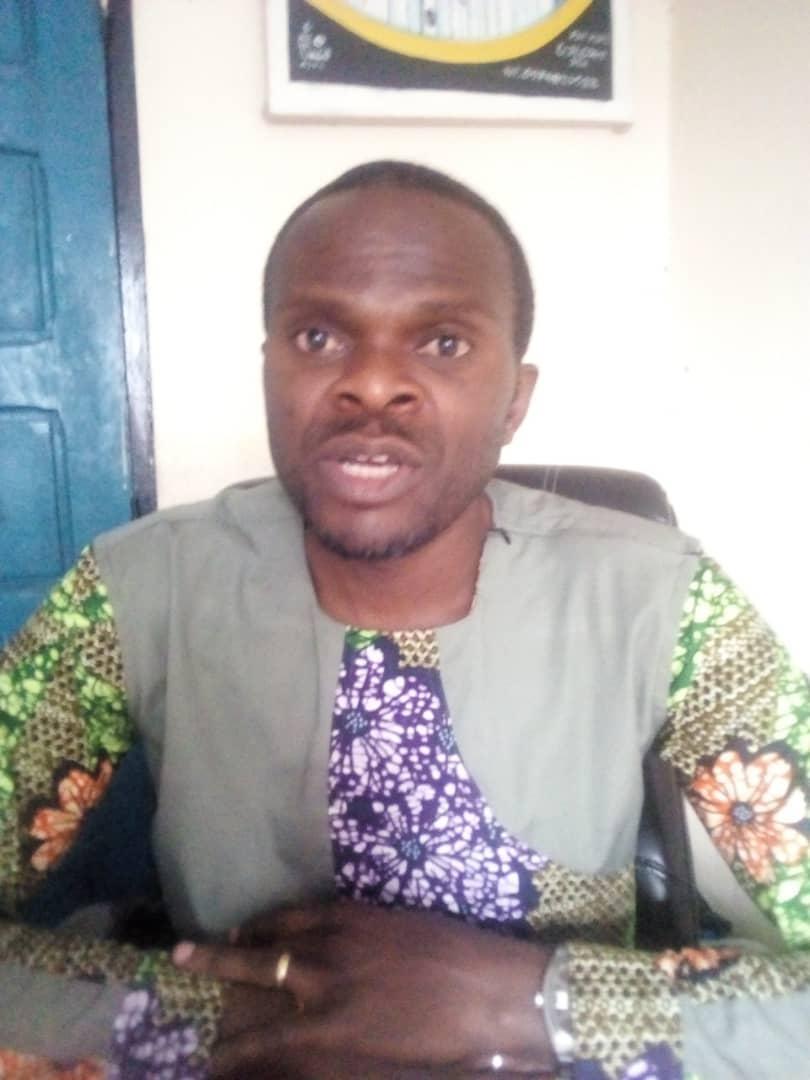
Baskaran would do well to consider Saleh’s perspective, take a history class, and study the writings of Philip Agee, Walter Rodney (author of the book, How Europe Underdeveloped Africa) and others with a similar viewpoint.
Of course, if she did that, she would be out of a job. The think tank she works for provides guiding principles for the U.S. plutocracy that is intent on continuing the pattern of destructive policies from which they reap enormous profits.
Trump Administration Goes All Out For Minerals in Africa
The Trump administration’s brazen mineral grab is evident in a pending deal with DRC President Felix Tshisekedi in which the U.S. would provide security assistance and stronger diplomatic backing and help the DRC defend itself from Rwanda’s invasion in exchange for allowing the U.S. International Development Finance Corporation to underwrite more U.S. investments in the DRC’s mining sector. The latter is estimated to be potentially valued at over $20 trillion.
The Financial Times reported that the Bill Gates-backed mining and artificial intelligence start-up, KoBold Metals—which also has investments in Zambia—is eyeing the huge but legally disputed Manono lithium deposits, which the new agreement would potentially give them the opportunity to excavate.
Other companies that may benefit from the new agreement are U.S.-based Orion Resources Partners, according to The Financial Times, U.S.-Canadian mining investor Robert Friedland, British-Australian-Canadian mining giant Rio Tinto, and Saudi Arabia’s United Mining.
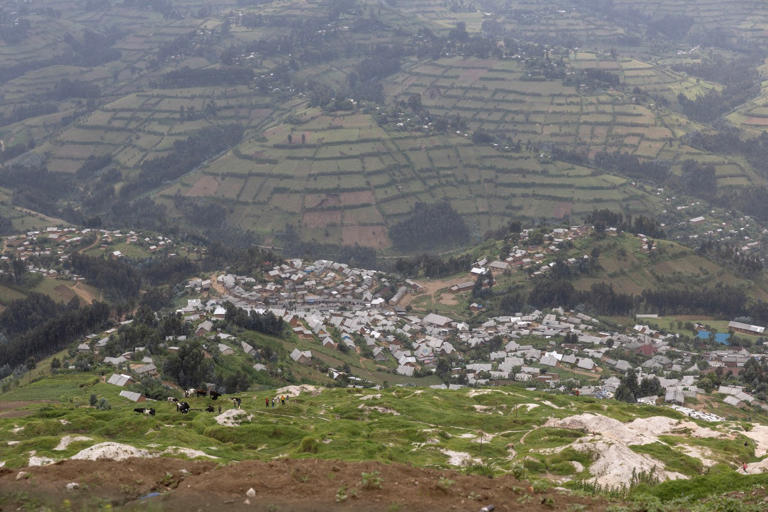
Ironically, the U.S. has long supported Rwanda and provided it with weaponry and intelligence support as part of a ploy to access the DRC’s rich mineral wealth that includes abundant supplies of cobalt, lithium and copper.
In South Africa, the Trump administration has applied crippling tariffs to try and keep the country in line, though excluded raw materials—platinum group metals, coal, gold, manganese and chrome—according to Creamer’s Mining Weekly.
This is characteristic of the Trump administration’s strategy that was outlined in an April 4 Wall Street Journal article “Minerals Become Ultimate Bargaining Chip in Trump’s Diplomatic Deals.”
It stated that “President Trump is pressing for access to mineral rights across the globe, hoping to outduel China in a global competition for raw materials to fuel U.S. military and industrial might. [Trump] has pushed the State Department to make mineral deals that would bolster U.S. industry and weapons, U.S. officials said. He has instructed the Pentagon to plan to refine metals on military bases and protect U.S.-operated mines in dangerous areas, the officials said.”[8]
So much for humanitarian intervention. The real impetus behind U.S. foreign policy for generations is laid out very clearly here, as in the CSIS report and writings and speeches of Philip Agee.[9]

See Jonathan Marshall, To Have and Have Not: Southeast Asian Raw Materials and the Origins of the Pacific War (Berkeley: University of California Press, 1995). ↑
In 2020, the National Endowment for Democracy (NED)—an off-shoot of the CIA—spent $313,000 in Zambia to finance civil society groups that may have included some of Hichilema’s supporters. Then in 2021, the NED provided $601,025 in grants, including to bloggers supportive of Hichilema and opposed to Edgar Lungu in the 2021 election. Hichilema’s government’s pro-U.S. leanings were apparent in his diverting from Zimbabwe and South Africa by voting at the UN to condemn the Russian invasion of Ukraine.
Other major corporations with mining ventures in Zambia with deep Wall Street connections and ties to the U.S. and Canadian political establishments include First Quantum Minerals, Anglo-American, Rio Tinto and Barrick Gold. Zambia is also seen as a potential source of nickel, graphite and rare-earth elements. Accusing the UPND-led government of prioritizing multi-national corporations over Zambia’s own citizens, Mumba warned that Hichilema’s policies would contribute to the ravaging of Zambia’s environment and argued that the suspension of the export tax would make it easier for “unscrupulous players to exploit resources while Zambia sees little benefit.” Mumba added that “the large-scale mining corporations, dominated by foreign ownership, stand to gain the most, leaving small-scale Zambian miners unable to compete.”
Hichilema refers to himself as “Zambia’s chief marketing officer” tasked with attracting foreign investment into Zambia. He has agreed to an IMF program imposing austerity on Zambians who are already living under extremely difficult circumstances with a dearth of public services. To his credit, Hichilema has advanced free public schooling. ↑
Reagan Kashinga, a socialist party member from the Copperbelt district, said that the UPND Government under Hichilema has “betrayed the forefathers by putting national and natural resources in the hands of the foreigners who were chased at independence.” Kashinga additionally said that President Hakainde Hichilema’s “love for foreigners and rich people at the expense of the majority suffering Zambians” was “alarming.” ↑
Gracelin Baskaran and Duncan Wood (Eds.), Critical Minerals and the Future of the U.S. Economy (Washington, D.C.: Center for Strategic and International Studies, 2025), 97. ↑
The historic pattern is detailed in many books, including William Blum, Killing Hope: U.S. Military and CIA Interventions Since World War II (Monroe, ME: Common Courage Press, 1998). ↑
The Wall Street Journal reported that senior officials including national security adviser Mike Waltz were “leading the hunt for mining contracts. Massad Boulos, father-in-law of Trump’s daughter, Tiffany Trump, is helping the administration obtain mining contracts as a senior adviser for African affairs.” ↑
Only Agee, to his credit though, raised any moral qualms, which is what led him to being blacklisted. ↑
CovertAction Magazine is made possible by subscriptions, orders and donations from readers like you.
Blow the Whistle on U.S. Imperialism
Click the whistle and donate
When you donate to CovertAction Magazine, you are supporting investigative journalism. Your contributions go directly to supporting the development, production, editing, and dissemination of the Magazine.
CovertAction Magazine does not receive corporate or government sponsorship. Yet, we hold a steadfast commitment to providing compensation for writers, editorial and technical support. Your support helps facilitate this compensation as well as increase the caliber of this work.
Please make a donation by clicking on the donate logo above and enter the amount and your credit or debit card information.
CovertAction Institute, Inc. (CAI) is a 501(c)(3) non-profit organization and your gift is tax-deductible for federal income purposes. CAI’s tax-exempt ID number is 87-2461683.
We sincerely thank you for your support.
Disclaimer: The contents of this article are the sole responsibility of the author(s). CovertAction Institute, Inc. (CAI), including its Board of Directors (BD), Editorial Board (EB), Advisory Board (AB), staff, volunteers and its projects (including CovertAction Magazine) are not responsible for any inaccurate or incorrect statement in this article. This article also does not necessarily represent the views the BD, the EB, the AB, staff, volunteers, or any members of its projects.
Differing viewpoints: CAM publishes articles with differing viewpoints in an effort to nurture vibrant debate and thoughtful critical analysis. Feel free to comment on the articles in the comment section and/or send your letters to the Editors, which we will publish in the Letters column.
Copyrighted Material: This web site may contain copyrighted material the use of which has not always been specifically authorized by the copyright owner. As a not-for-profit charitable organization incorporated in the State of New York, we are making such material available in an effort to advance the understanding of humanity’s problems and hopefully to help find solutions for those problems. We believe this constitutes a ‘fair use’ of any such copyrighted material as provided for in section 107 of the US Copyright Law. You can read more about ‘fair use’ and US Copyright Law at the Legal Information Institute of Cornell Law School.
Republishing: CovertAction Magazine (CAM) grants permission to cross-post CAM articles on not-for-profit community internet sites as long as the source is acknowledged together with a hyperlink to the original CovertAction Magazine article. Also, kindly let us know at info@CovertActionMagazine.com. For publication of CAM articles in print or other forms including commercial internet sites, contact: info@CovertActionMagazine.com.
By using this site, you agree to these terms above.
About the Author

Jeremy Kuzmarov holds a Ph.D. in American history from Brandeis University and has taught at numerous colleges across the United States. He is regularly sought out as an expert on U.S. history and politics for radio and TV programs and co-hosts a radio show on New York Public Radio and on Progressive Radio News Network called “Uncontrolled Opposition.”
He is Managing Editor of CovertAction Magazine and is the author of six books on U.S. foreign policy, including Obama’s Unending Wars (Clarity Press, 2019), The Russians Are Coming, Again, with John Marciano (Monthly Review Press, 2018), Warmonger. How Clinton’s Malign Foreign Policy Launched the U.S. Trajectory From Bush II to Biden (Clarity Press, 2023); and with Dan Kovalik, Syria: Anatomy of Regime Change (Baraka Books, 2025).
Besides these books, Kuzmarov has published hundreds of articles and contributed to numerous edited volumes, including one in the prestigious Oxford History of Counterinsurgency .
He can be reached at jkuzmarov2@gmail.com and found on substack here.

